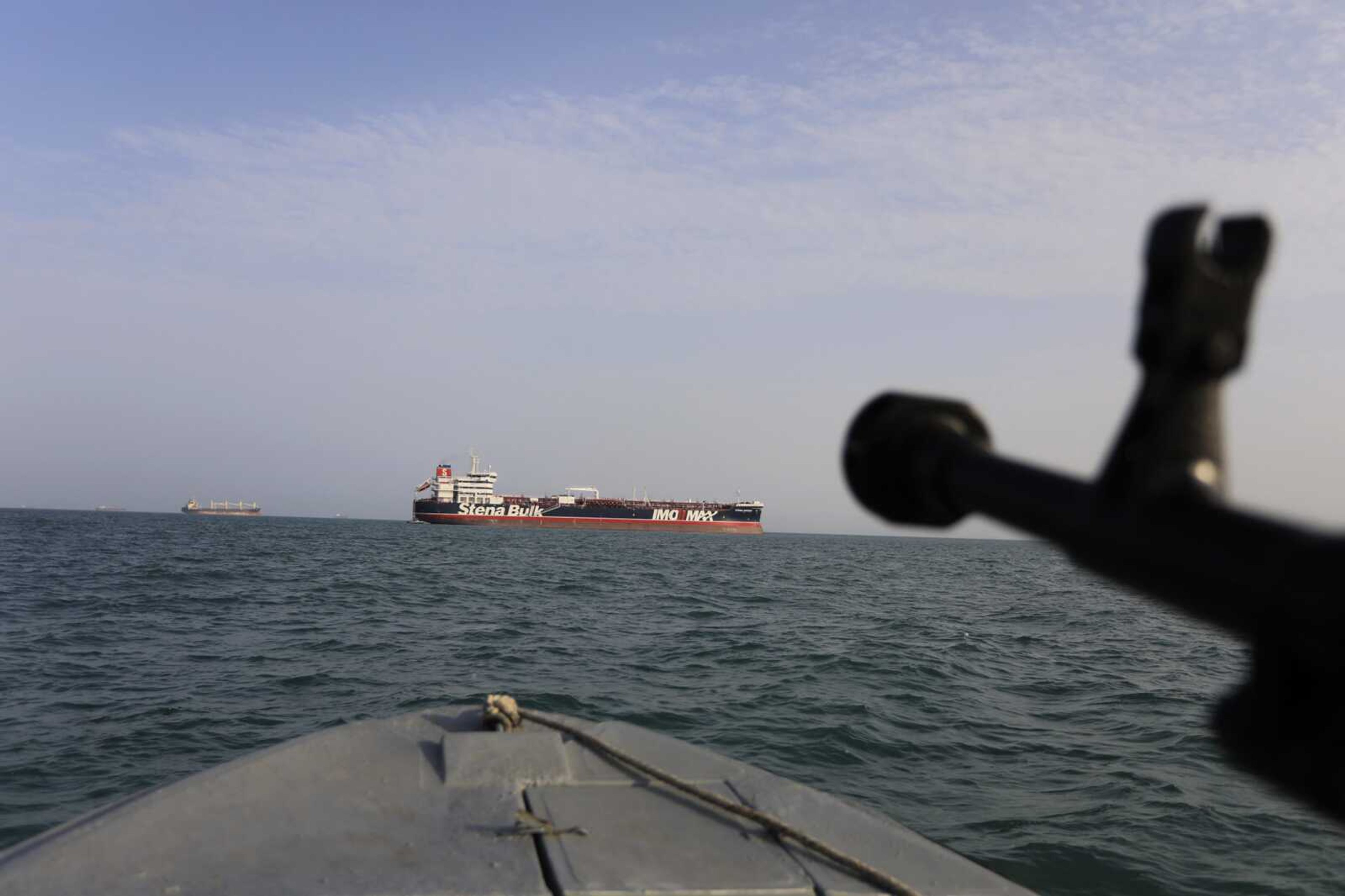UK: Europe-led mission will protect vital shipping in Gulf
LONDON -- Britain announced plans Monday to develop and deploy a Europe-led "maritime protection mission" to safeguard shipping in the vital Strait of Hormuz in light of Iran's seizure of a British-flagged tanker in the waterway. Briefing Parliament on the budding crisis, Foreign Secretary Jeremy Hunt accused Iran of "an act of state piracy" requiring a response of stern international resolve...
LONDON -- Britain announced plans Monday to develop and deploy a Europe-led "maritime protection mission" to safeguard shipping in the vital Strait of Hormuz in light of Iran's seizure of a British-flagged tanker in the waterway.
Briefing Parliament on the budding crisis, Foreign Secretary Jeremy Hunt accused Iran of "an act of state piracy" requiring a response of stern international resolve.
He announced few details but said Britain's European allies will play a major role keeping shipping lanes open. One-fifth of all global crude exports passes through the narrow strait between Iran and Oman.
"We will seek to put together a European-led maritime protection mission to support safe passage of crew and cargo in this vital region," he said.
"We have had constructive discussion with a number of countries in the last 48 hours, and we will discuss later this week the best way to complement this with recent U.S. proposals in this area."
He sought to put distance between Britain and its closest international ally, the United States. Washington has broken with London on Iran policy because of President Donald Trump's rejection of the international accord designed to prevent Iran from developing nuclear weapons. Trump pulled the U.S. out of the accord last year and reimposed harsh sanctions, which have had a severe effect on Iran's economy.
The foreign secretary said the planned European mission was not part of the U.S. policy of exerting "maximum pressure" on Iran.
It was not clear which countries will join the protection force Hunt is discussing, or how quickly it can be put in place.
Iranian officials have suggested the seizure was in response to Britain's role in seizing an Iranian oil tanker two weeks earlier.
Iran released new video showing the ship's crew for the first time Monday, an apparent attempt to show they were unharmed. None of the 23 are British nationals. The crew is mostly Indian, and includes Filipino, Russian and Latvian nationals.
British Prime Minister Theresa May chaired an emergency security session to discuss how to respond to Iran's actions.
May's official spokesman, James Slack, said giving an individual naval escort to all U.K.-flagged ships is not an option because of the volume of traffic. But he denied cuts have made the Royal Navy too small.
"We have the largest military budget in Europe, and we are investing in a world-class Royal Navy," he said.
Maritime industry publication Lloyd's List said there are currently no U.K.-flagged ships heading to the Persian Gulf and eight U.K.-flagged vessels anchored there after a government advisory told such vessels to avoid the Strait of Hormuz.
Connect with the Southeast Missourian Newsroom:
For corrections to this story or other insights for the editor, click here. To submit a letter to the editor, click here. To learn about the Southeast Missourian’s AI Policy, click here.









